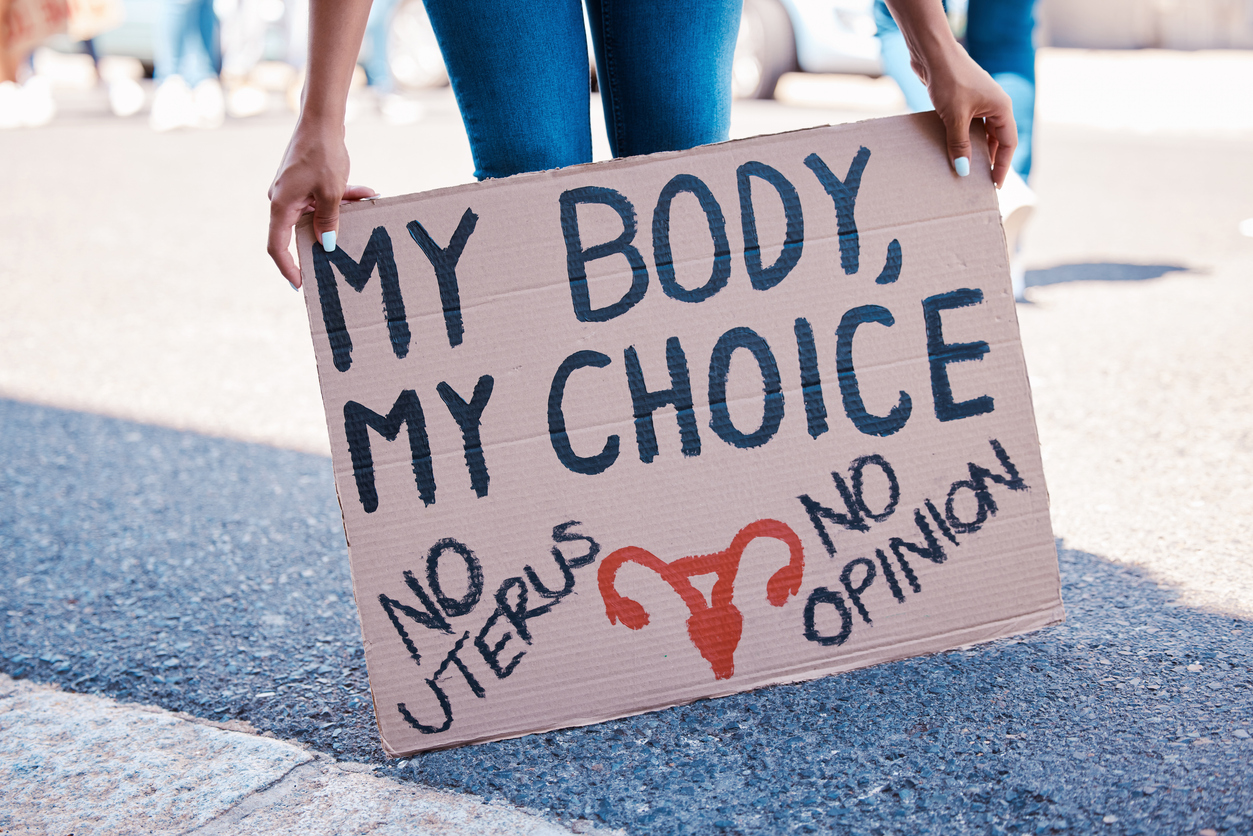Making abortion legal in Poland – The leftist crushing of conscience

– According to opinion surveys, a majority of Poles support an increased legal availability of abortion. This support fluctuates, however, depending on how the questions are formulated by surveyors.
– Far fewer Poles are willing to unconditionally support the killing on demand of children at the prenatal stage of life up to twelve weeks of pregnancy than a more moderate shift toward liberalizing access to abortion, which is currently limited in Poland to cases when a woman’s pregnancy poses a threat to her life or physical health or is the result of rape or incest.
– There are numerous indications that Poles have been persuaded that the tension between the right to life and ‘choice’ can only be resolved by expanding the freedom to kill.
– At least part of the public seems to think that yielding to the extreme pro-abortion proposals of PM Donald Tusk’s Civic Coalition (PO) and their New Left’s ally will finally resolve the problem of abortion in Poland, and that agreeing to legally extend the freedom to kill unborn children will be a prudent compromise between the rights of the child and the rights of adults.
Tomasz Rowiński, writing for Ordo Iuris
The actual awareness among the respondents
The mood that one can observe in Poland, as for example among social media users, leads to the conclusion that part of Polish society is convinced that the parliamentary vote on access to prenatal killing on demand up to the twelfth week will resolve the issue of the lives of the unborn once and for all. As of today, it can be seen that the radical projects submitted to the Sejm by PM Donald Tusk’s Civic Coalition (PO) and its New Left ally are gaining acceptance in the eyes of the Polish public. It is worth taking a look at what mechanisms are actually at work here.
Donald Tusk seems to have convinced a large part of our society that there is a need in Poland to ‘set anew those foundations which we can consider as common’ – as he said in his policy statement on 13 December 2023 – in regard to the protection of the lives of the unborn – or lack thereof – as well. According to the results of an IPSOS poll published on 6 March for oko.press and TOK.FM, as many as 62 per cent of respondents are in favour of at least one of the radically pro-abortion bills coming into force. It should nevertheless be hastily added that there is a noticeable volatility on this issue – or perhaps rather indecision, at least among some Poles – that can be observed with regard to this matter. In a survey conducted by the Institute for Social Research and Market (IBRiS) for Radio ZET, the results of which were published on 31 January 2024, where the question was asked not about draft laws but about whether ‘abortion up to the twelfth week of pregnancy should be allowed in every case’, the prudence seen among respondents was much more noticeable. In the case of this poll, 51 per cent of interviewees were in favour of adopting a law that would allow the killing of people at the prenatal stage of life, while 43 per cent were against it.
The results of the aforementioned polls indicate that it is likely that some respondents are unsure of how to resolve the conflict they are being presented with in the public debate between the irreducible values of what appear to be the right to life and ‘free choice’. For this is what liberal-left blackmail against human conscience is all about: Whoever is simply in favour of protecting life is automatically presented as an opponent of freedom.
The slogan ‘choice, not prohibition’, which has colonised the imagination of a significant part of Polish society, is a representation of the false alternatives posed to us by pro-abortion propagandists. There is a methodological question which should be added to the surveys, including those presented above: namely, whether the respondents were fully aware that the question refers to abortion on demand up to the twelfth week. The IBRiS poll comes closer to such transparency, although even here one would have to consider how respondents understand ‘every case’. Does it refer to each individual situation involving pregnancy, or perhaps to the statutory cases that have defined those situations in which abortion has been permitted by the Polish legislature since 1993?
Undoubtedly, however, especially among the ruling electorate’s coalition, feminist circles, with the support of liberals, have succeeded in spreading the false notion that the tradition of legally protecting the lives of the unborn which took shape in Poland after 1989 is an exaggerated form of radicalism, probably ‘tainted’ by the influence of Catholic teachings and some kind of religiously-motivated irrationalism. At the same time, in those sectors of public opinion that are situated between the political centre and the left, a similarly false belief has manifested that considers allowing prenatal homicide without restrictions up to the twelfth week as precisely some sort of compromise between – to use the logic and language of liberals – ‘prohibition’ and ‘choice’.
In an IPSOS poll for the Rzeczpospolita newspaper that was published on 18 December 2023, 60 per cent of Civic Coalition (KO) voters, 50 per cent of New Left voters, and 44 per cent of Third Way voters were in favour of unconditionally allowing abortion up to the twelfth week. Third Way is a political alliance of centrist parties that is also part of Donald Tusk’s ruling coalition.
Of course, the conviction that such a solution has the characteristics of a prudent moral compromise is completely arbitrary, because when it comes to the life of a human being, as Professor Andrzej Paszewski of the Institute of Biochemistry and Biophysics of the Polish Academy of Sciences once very aptly remarked, ‘from the stage of the zygote until late old age […] nothing is added from the outside that would change it qualitatively’.
Donald Tusk’s government will not find it easy to liberalize abortion in Poland
The alleged limitations on rights in fact ensure a protection of rights
All ethical or legal proposals which go beyond the acceptance of the principle of double effect, where the death of the child in the prenatal stage of life is permitted out of a need to save the health and life of the mother, do not meet the condition of a ‘prudent compromise’ between the principle of the right to life and freedom of choice. We are in fact dealing here with a confusion of different orders.
A ‘prudent compromise’ means finding a difficult, but at the same time necessary demarcation not between the right to life and freedom, but between the rights of two persons still organically linked to each other. Meanwhile, pro-abortion language, which still sometimes suggests a compromise between freedom and life or outright protection of the mother’s life by killing the child, is in fact only negotiating how far society can make a concession to an individual’s selfishness and his or her wish to remove another human being from society without consequence.
This is why there is a continuity between demands for abortion and demands for euthanasia – first of the elderly, then of the terminally ill of all ages, and finally of the mentally afflicted and newborn babies. This postulate, both today and in the past, is based on the hedonism-driven principle of utility.
What, then, is the nature of the hesitation to approve of abortion due to conscience as displayed above? It is quite easy to describe. A significant part of Polish society is still aware that the legal protection of life is not simply about a callous prohibition against freedom of choice, nor is it a revolt against such regulations in opposition to the restrictions that a (supposedly patriarchal) society imposes on women’s freedom to dispose of their bodies as they choose. It is about the right to life, the existence of which is recognised not only from a religious perspective, but also from a secular one. It is mentioned in the Universal Declaration of Human Rights in Article 3, as well as in the European Convention on Human Rights in Article 2, and even in the United States Declaration of Independence.
So what the Left and the liberals are trying to present to us as a ban in fact constitutes a protection of rights, and the fundamental purpose of all rights is to protect the weak – to a certain extent – from society’s violence. Thus, lifting this ‘ban’ will mean consenting to unregulated violence against a segregated group of society, in this case prenatal humans. Many people, even those longing for the myth of an abortion compromise, are quite aware of this.
❌ According to the newest survey, support for abortion on demand in Poland is at its lowest in years.
❌ In Poland, abortion is only legal if a woman’s pregnancy poses a threat to her life or physical health or if it is the result of rape or incest. pic.twitter.com/SkDurertoQ— Ordo Iuris International (@OrdoIuris_Int) March 21, 2024
The abortionists won’t stop
One might believe that those Poles who are wavering in their conscience also attribute their own dilemmas – perhaps even implicitly – to the politicians of the Civic Coalition (PO) or the New Left who support pro-abortion bills. But this is a cognitive error that the Left and the liberals are very much counting on to persist, given that it allows – for example, through the help of human rights rhetoric – to suggest to public opinion the increasingly drastically inhumane offers of free access to the extermination of people at the prenatal stage of development.
Just take a look at the pro-abortion infographic that the Young Left, the Parliamentary Left’s youth arm, published on its social media profile. It is possible to see the message it contains, which is aimed at a younger audience, as a Left-wing message for the future. ‘Free and safe abortion on demand’, reads the online leaflet. ‘Legal abortion without compromise’, the young leftists add. There is not a word about limiting the practice to the twelfth week or saving women who could allegedly lose their lives because of the legal protection of unborn children. There is simply ‘abortion on demand’. This could mean – given what is practised in various other countries – the killing of children even during childbirth or so-called ‘post-natal abortion’.
This is the future that the Left envisions for Poland, which today is simply shifting the Overton window by restricting the public’s access to its actual beliefs and goals.
Besides, the rhetoric of the ruling coalition’s politicians has already changed since their days in opposition under the United Right government. The unfortunate victims of medical malpractice, such as Ms. Izabela from Pszczyna – for whose death the Left falsely blamed the lawmakers, the Constitutional Tribunal, the Law and Justice party, the right wing, and even anyone who expresses opposition to pro-abortion radicalism – have disappeared from the narrative horizon.
Attempts have been made in such cases to prove that the law in Poland – which protects the lives of children – makes it impossible to save the life of the mother when it is necessary. Unsurprisingly, these stories have ceased to be interesting and useful. What is the connection, after all, between exceptional emergency situations, in which the lives of two people are truly at stake, and the demand for abortion on demand up to the twelfth week alongside the complete loosening of the rules for its use in subsequent trimesters of pregnancy?
Let us recall that in the bill proposed by the New Left, there is a provision according to which the premise of ‘threat to the mental health of the pregnant person’ is sufficient to kill the child after the twelfth week. The experience of other countries shows that this is not a rule that restricts prenatal killing, but rather opens up accessibility to it – in this case implicitly, up to the ninth month of pregnancy. Everyone should therefore be aware that the promoters of abortion are constantly presenting the “truth” that is more appropriate at a given stage when addressing the public, which is in fact lying.
***
Tomasz Rowiński is a senior research fellow of the project ‘Ordo Iuris: Civilization’ by the Ordo Iuris Institute, as well as an editor at Christianitas and the portal Afirmacja.info. He is also a historian of ideas, a columnist, and an author of books, among them: Bękarty Dantego. Szkice o zanikaniu i odradzaniu się widzialnego chrześcijaństwa, Królestwo nie z tego świata. O zasadach Polski katolickiej na podstawie wydarzeń nowszych i dawniejszych, Turbopapiestwo. O dynamice pewnego kryzysu, and Anachroniczna nowoczesność. Eseje o cywilizacji przemocy. He lives in Książenice, near Grodzisk Mazowiecki, in Poland.



